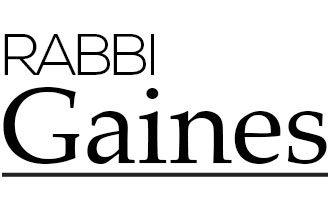The Hebrew month of Tishrei is fast approaching and with it, an unusual Rabbinical tradition that insists we do not to bless the month on the Shabbat preceding its arrival. To clarify, eleven months out of the year we bless the coming month by reciting certain verses (in the presence of the Torah) on the Shabbat directly preceding its arrival. The first day of the new month is called “Rosh Chodesh” (Hebrew for, “Head of the Month”), because it is the “head”, the first, official day of the new month. But not on Tishrei! On Tishrei, the 7th month of the Jewish calendar, we refrain from blessing. But why? Why withhold our blessings from the month that is most saturated with Jewish holidays (four of the eight major Jewish holidays occur on Tishrei)! Considering the richness of Divine consciousness inherent to the month of Tishrei, it seems counterintuitive we refrain from participating in its becoming - via the giving of our blessing.
Of the many explanations given to explain this mysterious tradition, the Ba’al Shem Tov (founder of the Chassidic movement) offers a most intriguing insight. In his words (to paraphrase), we do not bless this month (the 7th month) because God Himself blesses it! Question: Doesn’t God bless every month? Even if the Jewish nation blesses 11 of the months out of the 12 months of the year (as mentioned above), surely this is only in tandem with the Creator - in partnership with Him. What is so special then about this, the 7th month, that God blesses it alone - without the participation of man? Perhaps the answer lies in the liturgy of Rosh Hashana (Hebrew for, “Head of the Year”), the holiday that celebrates the Jewish new year (1st day of the month of Tishrei). There, within the pages containing all the prayers, texts, and poems relevant to Rosh Hashanah, we read, “This day is the birthday of the world”.
Question: According to Jewish tradition, Rosh Hashanah (1st of Tishrei) corresponds to the 6th day of creation - the 6th of the 7 Biblical days of creation (see Genesis). And what was created on the 6th day? Adam, man himself (the world came into existence 5 days earlier on the 25th of the Hebrew month of Elul). Hence, the text should read, “Today is the birthday of man”, not, “Today is the birthday of the world”! Why do we say, specifically, “world”? Explains Rabbi Menachem Mendel Schneerson of Lubavitch (Likkutei Sichot), man’s creation (his arrival) heralds the true “birth” of the world, for it was then the world’s spiritual nature became completely manifest - courtesy of man’s Divine service. In other words, though the world already existed for a period of 5 days proceeding man’s creation, its “existence” was entirely material seeing as it was utterly devoid of Divine service. The arrival of man, explain the Rabbis, is the “birth” of creation’s true purpose; to be a “dwelling place” for God below - a refined spiritual world openly revealing God’s presence. This process of refinement, or, the converting of coarse materiality into spiritual substance, depends on man’s participation (his prayers, Torah study, and good deeds in particular), as explained at length by the Rabbis.
In Kabbalah (see the Zohar in Genesis), mankind’s participation is likened to the hydrologic cycle, wherein, condensation (clouds proceeding precipitation) forms only after evaporation - the conversion of liquid water into “fine mist” (gaseous water) as known in modern science. Explain the Kabbalists, when mankind serves/arouses (“evaporates”) from below, i.e. serves God, the world converts/changes from physical (“liquid water”) into spiritual (“clouds and fine mist”). These “clouds” allow for the blessing of “rain” - the unification of heavens and earth (revelation of the world’s innate spiritual potential), as explained at length in Kabbalah. Since it is clear (from the above metaphor) that man’s participation allows for the world’s true “birth” - revelation of Divine potential - his arrival is truly its birthday, “Today (man’s creation) is the birthday of the world.”
But this now reinforces our original question: Why don’t we bless the month of Tishrei (considering Rosh haShana celebrates mankind’s birth and, as a consequence of his service, the world’s true “birthday” - its spiritual becoming)? Perhaps we may answer drawing upon an insight from the Imrei Noam (Chassidic/Kabbalistic text). There, he explains, while it is true that mankind’s participation is likened to evaporation (as explained above), without sunlight (the heat of the sun), this conversion (liquid to gas/physical to spiritual) could never happen. And what does the “sunlight” allude to? God, the help of the Almighty (“support of heaven” in the language of the Sages) necessary for man to achieve his goals. Without adequate “sunlight” (heat) it is impossible for water to “rise” - to change from liquid to gas (physical to spiritual) - no matter its desire to do so. It is only with God’s help (adequate sunlight) that we, mankind, can achieve our aim to “evaporate” (transform) “liquid” to “gas” - physical to spiritual.
Perhaps we can now better understand the tradition to omit our blessing from the month of Tishrei - the month celebrating mankind’s creation and his contribution to the spiritual becoming of the world - thus allowing God alone to bless this month (as explained by the Ba’al Shem Tov). It is to remind us that without God’s help man’s efforts - no matter his desire - are fruitless. For just as water can’t rise without sunlight, so too, man can’t rise without God. When we partner with God remembering, “He gave you strength to make wealth” (Deuteronomy 8:18), we form an unbreakable alliance that will, with certainty, elicit a “downpour” (ample blessing) for the new year.
Happy Rosh haShana and may you and yours be inscribed and sealed in the book of life.




